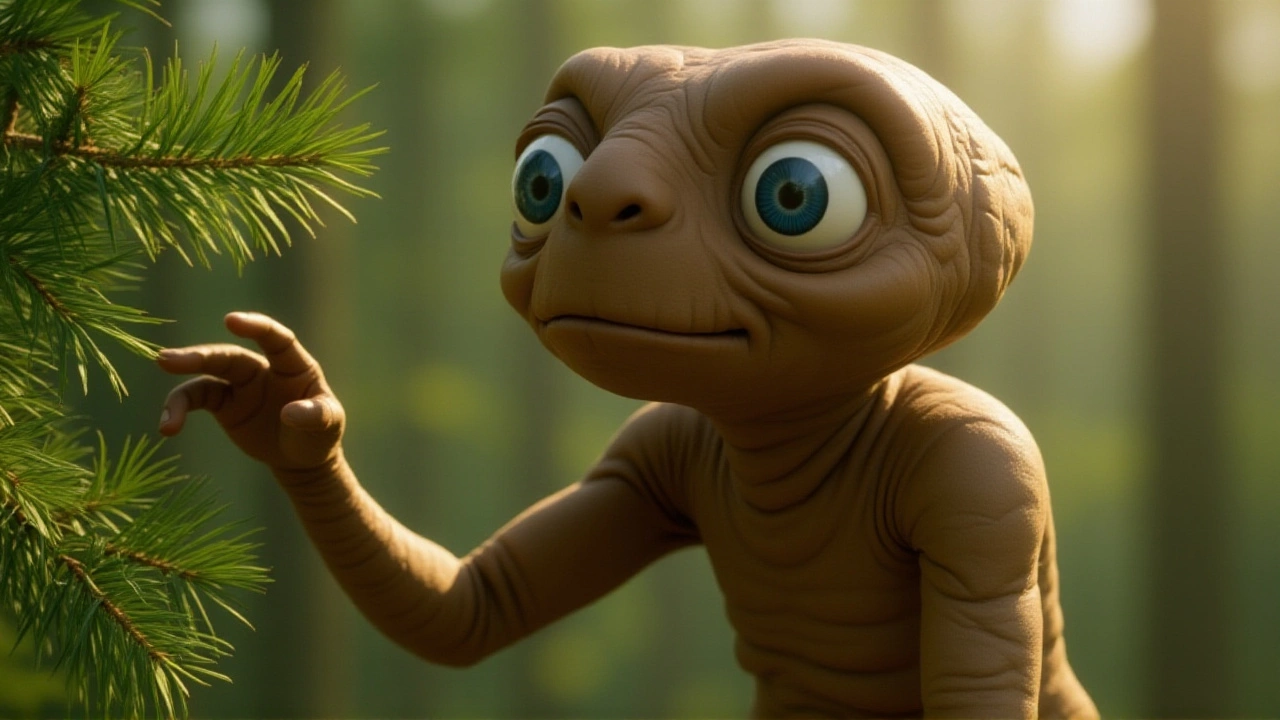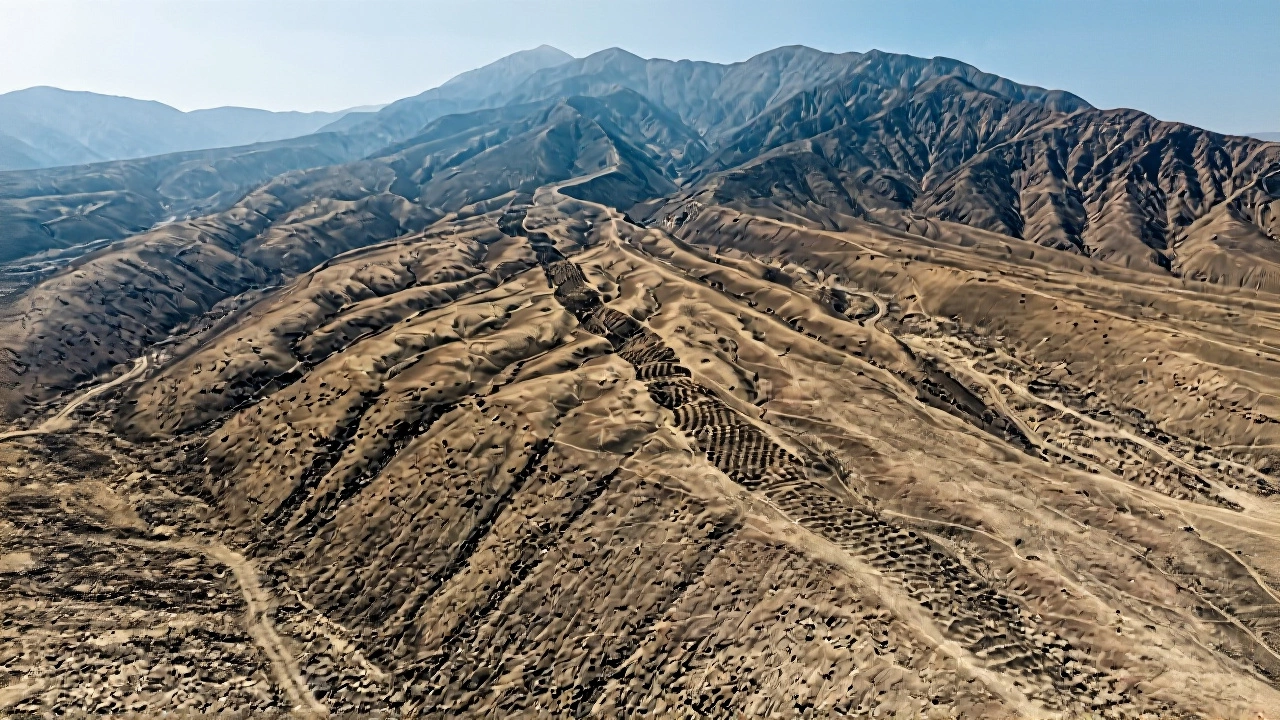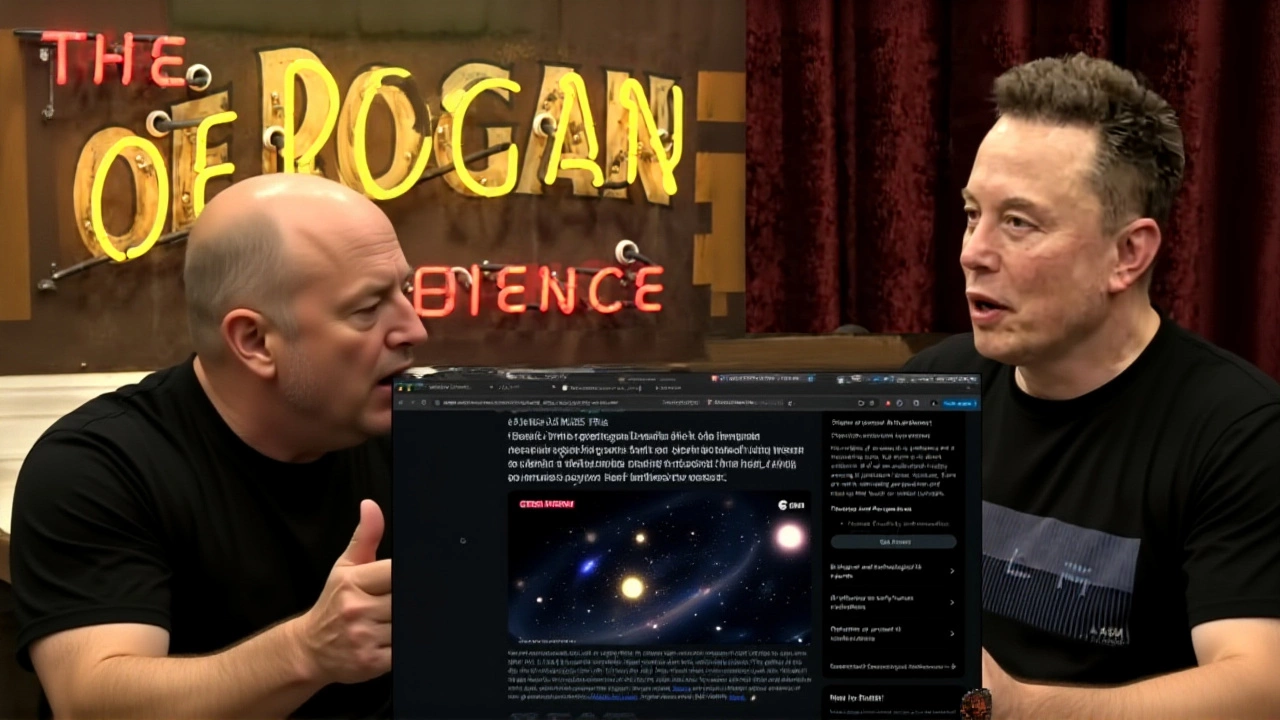On October 31, 2025, Elon Musk, the 54-year-old CEO of SpaceX and Tesla, Inc., dropped a bombshell during a 3-hour, 18-minute appearance on Joe Rogan’s podcast. "If I was aware of any evidence of aliens, Joe, you have my word I will come on your show and reveal it," Musk said, staring directly into the camera. The moment wasn’t just theatrical—it was a direct response to years of online speculation that anyone who uncovers alien secrets vanishes, often under mysterious circumstances. And then came the kicker: "It would obliterate a continent type of thing... maybe worse." He was talking about 3I/ATLAS, the third confirmed interstellar object ever detected, spotted by astronomers in July 2025.
What Is 3I/ATLAS—and Why Is Everyone Freaking Out?
3I/ATLAS isn’t just another comet. It’s a rogue visitor from another star system, moving faster than anything we’ve seen before. At an estimated 20 kilometers wide—roughly the size of Manhattan—it’s made mostly of nickel and ice, with an unusual chemical signature that’s throwing off even seasoned astrophysicists. Professor Avi Loeb, the former chair of Harvard’s astronomy department, has publicly suggested there’s a 30 to 40 percent chance it’s not natural. He claims to have seen infrared images suggesting a "hot engine or source of artificial light" embedded within the object. To some, it’s a potential alien mothership. To others, it’s a fluke. Enter Professor Brian Cox, the British particle physicist from the University of Manchester. He called Loeb’s theory "drivel." "It’s a pristine lump of rock and ices, billions of years old," Cox said in a BBC interview days after the podcast aired. "We’ve seen comets like this before. They’re just… weird. Not alien."Musk’s Warning: A Continent-Wiping Impact
Rogan asked Musk point-blank: "If it hit Earth, what happens?" "It would probably kill most of human life, if not all of us," Musk replied, his tone unusually grave. He clarified immediately that 3I/ATLAS poses no collision threat—its trajectory is clear, and NASA has confirmed it’ll pass by Earth at a safe distance of 1.2 billion kilometers. But the thought lingered. A nickel-rich object that size, traveling at over 100 kilometers per second? It wouldn’t just crater. It would trigger global firestorms, tsunamis, and an atmospheric shutdown. Think dinosaur-killer level. And yet, no one’s panicking. Why? Because the scientific consensus is clear. NASA and the SETI Institute in Mountain View, California, have repeatedly stated there’s no evidence of artificial origin. "Every astronomer has been screaming for the past few months, it is a comet," Musk admitted.The Suicide Conspiracy and Musk’s Defiant Reply
The podcast didn’t just dive into space rocks. It touched on the dark underbelly of UFO lore: the belief that whistleblowers vanish—or worse. Rumors have swirled for years that scientists, pilots, or government insiders who claim to have seen alien tech end up dead in "accidents" or by "suicide." Musk cut through it. "I’m never committing suicide, to be clear. So, on camera, guys, I am never committing suicide ever." The line landed like a hammer. It wasn’t just a joke. It was a shield. A statement against the myth that truth-tellers are silenced. He added, "If aliens wanted to reveal themselves, they could just walk down Main Street. Say, ‘Hey, I’m an alien.’" The absurdity was intentional. He was mocking the idea that extraterrestrials are hiding in plain sight… and that we’re too dumb to notice.
Why This Matters Beyond the Hype
This isn’t just about a viral podcast moment. It’s about how society processes the unknown. We’ve spent decades chasing ghosts in the sky—UFOs, crop circles, alien abductions. But now, we have hard data: a real interstellar object with strange properties, analyzed by top scientists, tracked by satellites, and discussed on a show with 12 million monthly listeners. Musk, despite being the world’s most visible space entrepreneur, remains skeptical. "I have yet to see any actual evidence of aliens," he said. That’s significant. He’s not a conspiracy theorist. He’s a man who launches rockets for a living. If he saw something, he’d know. And yet, the fear persists. The fear that we’re not alone. That something out there could end us. That the truth is being buried.The Bigger Picture: The Fermi Paradox and the Great Filter
Musk brought up the Fermi Paradox—the question of why, if the universe is teeming with life, we haven’t seen a single sign of it. His answer? The Great Filter. Some catastrophic event prevents civilizations from reaching interstellar capability. Maybe it’s nuclear war. Maybe it’s AI. Maybe it’s running into something like 3I/ATLAS. "If the filter is ahead of us," he mused, "we’re in trouble. If it’s behind us… we’re lucky." The object’s name, he joked, sounds like "Third Eye." He’s right—it does. And maybe that’s the real mystery. Not whether it’s alien. But why we’re so desperate to believe it is.
What’s Next?
Astronomers are now racing to track 3I/ATLAS as it exits the solar system. The James Webb Space Telescope has been redirected to capture its final spectral readings. Meanwhile, the SpaceX team is analyzing whether their Starship prototypes could theoretically intercept such an object—just for science, not defense. And Joe Rogan? He posted the episode on X (formerly Twitter) on October 31 at 6:23 PM IST. The caption: "3 hours and 18 minutes of fun with @elonmusk." It’s been viewed over 28 million times.What Did We Learn?
We learned that the most powerful man in space doesn’t believe in aliens… yet. We learned that a chunk of space rock can spark global headlines. And we learned that when someone with Musk’s influence says, "I’ll tell you if I see proof," the world leans in. The truth might be simpler than we think. Or it might be more terrifying. Either way, we’re watching.Frequently Asked Questions
Is 3I/ATLAS really a threat to Earth?
No. NASA has confirmed 3I/ATLAS will pass Earth at a safe distance of 1.2 billion kilometers—over three times the distance to Jupiter. While its size and composition make it theoretically capable of causing global devastation if it hit, its trajectory is well-calculated and poses zero risk. The danger is hypothetical, not imminent.
Why does Avi Loeb think 3I/ATLAS might be artificial?
Loeb points to its unusually rapid brightening, high nickel content, and unexpected reflectivity in infrared images, which he says don’t match known natural comets. He’s compared it to ‘Oumuamua, the first interstellar object, which he also speculated might be alien tech. But most scientists argue these anomalies can be explained by unusual ice composition or rotational dynamics.
Did Elon Musk claim to have seen alien evidence?
No. Musk explicitly stated he has seen no evidence of aliens or UFOs. His promise was conditional: if he ever did, he’d reveal it on Rogan’s show. That’s a commitment to transparency—not a confession. His skepticism is consistent with his engineering mindset: extraordinary claims require extraordinary evidence.
Why did Musk mention suicide in this context?
He was directly countering online conspiracy theories that scientists or insiders who uncover alien secrets die by suicide or mysterious accidents. His blunt statement—"I’m never committing suicide"—was a public rebuttal to that myth, meant to reassure the public he won’t be silenced, and to challenge the narrative that truth is lethal.
What role does SpaceX play in studying 3I/ATLAS?
SpaceX isn’t directly observing 3I/ATLAS—that’s NASA’s job. But SpaceX engineers are analyzing whether Starship could theoretically rendezvous with such an object in the future, purely for scientific study. It’s a thought experiment, not a mission. Still, it signals how seriously the private space sector now treats interstellar anomalies.
Why is this story trending globally?
Because it blends high-stakes science, celebrity influence, and ancient human fears. Musk’s fame, Rogan’s reach, and the eerie nature of 3I/ATLAS created a perfect storm. Outlets like The Times of India, NDTV, and IFLScience covered it because it’s not just science—it’s culture. People want to believe we’re not alone. And they want to know if the truth is being hidden.
